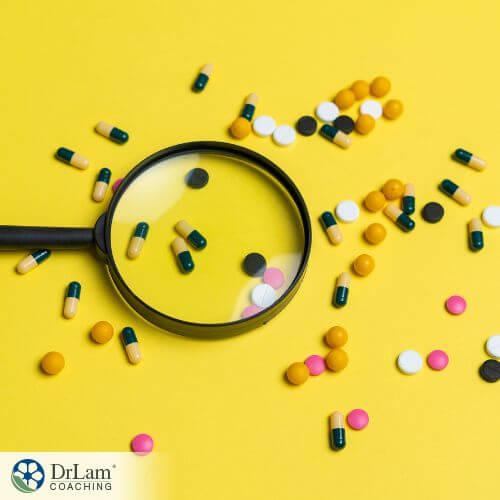You've heard of these supplements, but they aren't all good for you. Having a working supplement knowledge base is key for choosing the best supplements to help support your health without causing potentially dangerous side effects. This basic background info can guide your choices.
These are five tips you need to know before buying supplements.

Vitamins and minerals target specific body organs and functions. The food you eat should contain these vitamins and minerals, but it may not have enough. Hence, you may need to get them from supplements.
Supplements generally come in three modes of delivery:
The FDA is less strict with supplements, unlike over-the-counter and prescription drugs. For example, they do not certify supplements’ efficacy and safety. But they do require supplement companies to give proof of safety and have truthful claims on labels. These claims ideally should not mislead people.
Supplement knowledge also involves understanding the several different types of supplements.
Your body quickly absorbs water-soluble vitamins. These vitamins travel all over your body. Your cells use them for energy, but your body does not store them. Instead, your kidneys help excrete excess vitamins in urine. As a result, you need to replenish these vitamins with your food. Or you can take supplements regularly.
These are some functions of water-soluble vitamins:
Each of these vitamins also serves several other key roles in your body, although these are some of the functions they are best known for.
In contrast, fat-soluble vitamins are absorbed into your lymph system. They then travel in the blood. But they are stored in excess fat in the liver, unlike water-soluble vitamins. This means it can be harmful when these vitamins build up in excess amounts. These are some functions of the four fat-soluble vitamins:
Again, each of these vitamins also serves several other key roles in your body.
 In addition, supplements may come from natural or synthetic sources. You can find natural vitamins in your foods such as fruits, meats, and vegetables. In contrast, synthetic vitamins are artificially added to foods, like fortified cereal or pasta. Food that can act as supplements come in three forms.
In addition, supplements may come from natural or synthetic sources. You can find natural vitamins in your foods such as fruits, meats, and vegetables. In contrast, synthetic vitamins are artificially added to foods, like fortified cereal or pasta. Food that can act as supplements come in three forms.
Fortified foods contain added trace vitamins and elements. But they are not designed for specific health benefits. Or there may not be enough added nutrients to benefit your health. Examples are fortified bread, cereals, dairy, and juices.
Second, nutraceuticals are foods that contain health and medical benefits above basic nutrition. They are considered pharmaceutical-grade and have one or many nutrients. Examples are herbal products and prebiotics. According to Allied Market Research, nutraceuticals were valued at $413 billion in 2020. And by 2030, they project the value of these products to surge to $650 billion.
Third, functional foods have health benefits beyond just their nutritional value, what you would see on the food label. Unlike fortified foods, functional foods have important health benefits on their own. These include berries, nuts and seeds, grapes, and green leafy vegetables.
Here is another topic to enhance your supplement knowledge. Some supplements contain antioxidants. Antioxidants help the body get rid of toxins. Toxins can come from diet, stress, or pollutants. In addition, antioxidants help reduce inflammation triggered by toxins. Natural foods high in antioxidants include broccoli, avocado, and kale. At the same time, common antioxidants found in supplements include vitamins E and C.
Phenolic compounds, which are natural in many foods, act as antioxidants. They are present in berries, grapes, and pomegranates. You can also find them in beverages, spreads, and cocoa products. A 2015 review discusses in detail the many antioxidants and health effects of phenolic compounds.
Supplements are often suggested if you are not getting enough of a certain vitamin of mineral. This could be because of aging, pregnancy, a special diet, or a medical condition. The top three most common vitamin deficiencies in the USA are vitamin D, B-comples vitamins, and vitamin A, in order.
You can make vitamin D from sunlight. Unfortunately, many people do not get enough sunlight. Plus, sun exposure can cause skin cancer and is not possible in some areas. Vitamin D deficiency leads to bone problems like osteoporosis.
Lack of vitamin A intake, poor fat absorption, or liver problems leads to a vitamin A deficiency. People with vitamin A deficiency experience skin and visual changes.
A deficiency in vitamin B can lead to several different symptoms depending on which vitamin you don't have enough of. Symptoms include fatigue, anemia, and skin rashes. Moreover, stomach or intestinal problems contribute to vitamin B deficiency.
But there are some common signs of vitamin deficiency. Some examples are brittle or falling hair, bleeding gums, and poor night vision. If you have these symptoms, consult your health provider for a thorough check-up.
 Having supplement knowledge also means understanding how supplements can negatively affect your body. They offer many health benefits, yet they can also cause harm. For instance, excessively high doses of vitamin C can cause nausea and diarrhea, while overdoses of vitamin E can cause bleeding.
Having supplement knowledge also means understanding how supplements can negatively affect your body. They offer many health benefits, yet they can also cause harm. For instance, excessively high doses of vitamin C can cause nausea and diarrhea, while overdoses of vitamin E can cause bleeding.
Supplements can also interact with the medications you are taking. They may lessen the effect of the drug, increase it too much, or cause a medical problem. For example, vitamin E and warfarin can result in heavy bleeding. You get a similar effect from taking vitamins A and K with warfarin.
Similarly, avoid vitamin D supplements if you are on digoxin, a heart medication. Your calcium blood levels rise at high doses of vitamin D, which can increase your risk of heart problems when you are taking digoxin.
If you are on medications, it's best to consult your health provider before starting a new supplement. Supplements are generally safe in the correct dose and frequency, but it is best to check with your doctor to make sure they don't have a dangerous interaction with any medication.
Supplements play a vital role in keeping your body's organs and functions healthy, especially when you are under stress. Every day you are exposed to stress. It can be brought about by health problems and the demands of daily living.
Your body responds to stressors through the NeuroEndoMetabolic (NEM) Stress Response, which consists of six circuits of related organ systems. These are the:
However, there can come a time when your body can no longer handle chronic stress. This leads to Adrenal Fatigue Syndrome (AFS). This syndrome affects the different circuits. Supplements help support the NEM Stress Response to combat the negative effects of stress.
Knowing which supplements benefit different organ systems is important supplement knowledge. For instance, antioxidants boost the detoxification circuit. Other supplements target the cardionomic circuit for better heart health.
People became more aware of their health and wellness during the pandemic. As a result, buying habits have been driven by the desire to improve nutrition. A 2021 report projects global supplements sales to surge to $71 billion by 2028.
However, before you start taking supplements, it's important to talk to your doctor and have supplement knowledge of the best supplements for your situation. If you experience unusual effects, talk to your doctor and stop the supplement immediately.
If you need help choosing the right supplements for your body and situation, get in touch with our Coaching Team for a free consultation at +1 (626) 571-1234, or use our Ask the Doctor system.
Supplement knowledge is important to help you identify supplements that work best for your body. It helps you avoid side effects, negative interactions, and overdosing. Best of all, you get to understand how they affect your body and functions.
